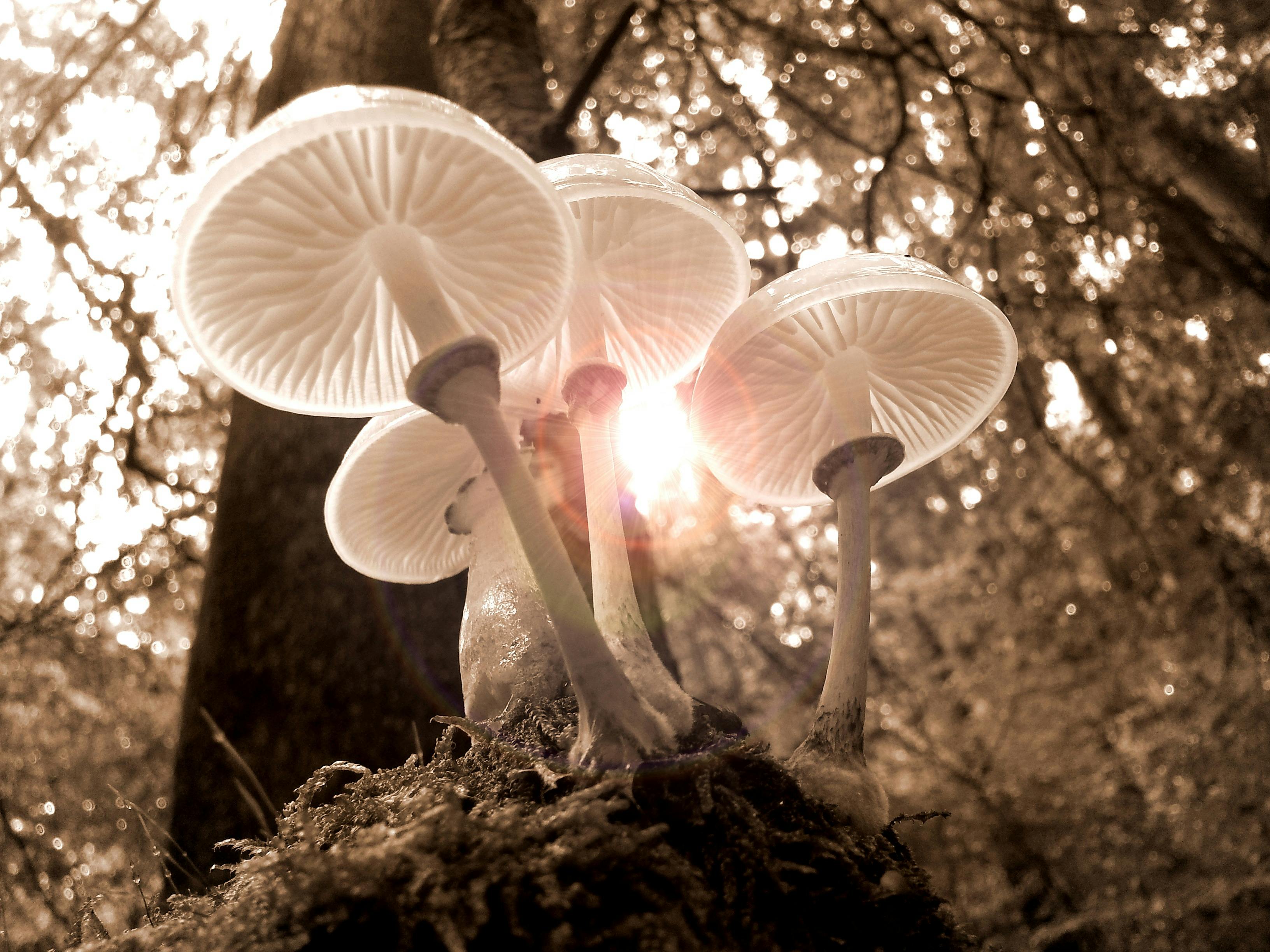P-TRD
In 2022, the results of the first study with psilocybin were published. We are now starting with the follow-up study.
What are we investigating? uitklapper, klik om te openen
The psychedelic psilocybin is the active ingredient in some mushrooms and truffles. In this follow-up study, a phase 3 study, we are investigating the efficacy and safety of 2 consecutive administrations of psilocybin in people with depression in whom at least two antidepressants have not worked or have worked poorly during the current depressive period.

Hard-to-treat depression is a major problem for patients, which is why it is important to develop new treatments. One speaks of difficult-to-treat depression when previous drug treatments have not helped or have helped little. In recent years, a number of studies have appeared showing that psychedelics, including psilocybin, may have a good effect on depressive symptoms. The results from the largest and most important study of psilocybin in depression to date (a phase 2b study) were published in 2022 and can be read here.
The follow-up study, also called phase 3, is about to start.
Psychedelics are drugs that temporarily alter your consciousness and perception, allowing you to temporarily see, feel or hear things differently. Before we know whether the therapeutic uses of psychedelics are effective in people with depression, it is very important to conduct proper research on the efficacy of psychedelics.
The psychedelic psilocybin is the active ingredient in some mushrooms and truffles. In the follow-up study, we are investigating the efficacy and safety of 2 consecutive psilocybin doses in people with depression, in whom at least two antidepressants have failed or had little effect during the current depressive period. Are you struggling with difficult-to-treat depression and interested in participating in this study? Then please continue reading.
The study takes place at different locations in Europe under the same research protocol. In the Netherlands, the study is taking place at UMC Utrecht, UMC Groningen and Leiden UMC.
N.B. We strongly discourage patients from using psilocybin as a therapeutic agent at home and outside of the study.
Who can participate in the study? uitklapper, klik om te openen
This study will be performed in people 18 years and older who have a difficult-to-treat depressive disorder diagnosed by a physician. Participation in the study is possible if:
- You have tried at least two different medications for depression (antidepressants) during the current depressive period, in which there was little or no effect.
- You do not have or have had bipolar disorder, borderline personality disorder, post-traumatic stress disorder, obsessive-compulsive disorder, anorexia nervosa, or a psychiatric disorder associated with psychosis, such as schizophrenia.
- There have been no addiction problems in the past year.
- You have not been admitted to a psychiatric ward in the past six months.
- You do not have a serious medical condition.
- You are not pregnant and/or breastfeeding.
- You do not have a heart condition or a high blood pressure that is not being treated.
There are a number of other situations in which you cannot participate. A researcher of the study can tell you more about this.
What does participation look like? uitklapper, klik om te openen
Because this is a medical-scientific study, there are strict criteria for participation. We ask for a letter from your primary care physician or practitioner confirming depression and its treatment. We also screen potential participants in advance before they can possibly participate. As with the Phase 2 study, Phase 3 is a randomized study, meaning that lottery will determine which dose of psilocybin you will receive.
Prior to the first psilocybin session, a participant completely tapers off his or her medication against depression (antidepressants). This is done in consultation and under the supervision of a doctor at UMC Utrecht. This is necessary because antidepressants may interact with psilocybin. After both psilocybin sessions, a number of appointments with the research therapist follow to talk about the psilocybin experience.
The study consists of 3 parts - A, B and C - and lasts a total of 52 weeks.
Participation is voluntary and quitting earlier is always possible.
Component A lasts 9 weeks
You will come to the hospital at least 12 times during this period. You will receive a dose of psilocybin (1, 10 or 25 mg) on day 1 and day 23.
Component B lasts 17 weeks
During this period, we will keep in touch with you to take some questionnaires. If the depression has not subsided enough or returns, you will have the option of receiving another dose of psilocybin (1, 10 or 25 mg). You will come to the hospital 6 times for this.
Component C lasts 26 weeks
During this period we will keep in touch with you to take some questionnaires. If the depression has not subsided enough or returns, you will have the option of receiving another dose of psilocybin, this time 25 mg. You will come to the hospital 6 times for this.
Research team uitklapper, klik om te openen
- Dr. Metten Somers (psychiatrist and principal investigator)
- Paula Ywema (research coordinator)
- Dr. Pim van der Meer (resident psychiatrist and co-principal investigator)
- Aumer van Reemst (nursing specialist and research therapist)
- Astrid Hoppe (clinical psychologist and research therapist)
- Renske Blom (psychiatrist and research therapist)
- Jan Mars (GZ-psychologist and research therapist)
Contact uitklapper, klik om te openen
If you are interested in participating or have questions about the study, please email the study team at UMC Utrecht at PTRD@umcutrecht.nl or call the registration team at the Department of Psychiatry at UMC Utrecht: 088-7555888
If interested in participating in UMC Groningen, please email the study team at psilostudie@psy.umcg.nl
If interested in participating at Leiden UMC, please email the study team at PsiloTRD@lumc.nl

